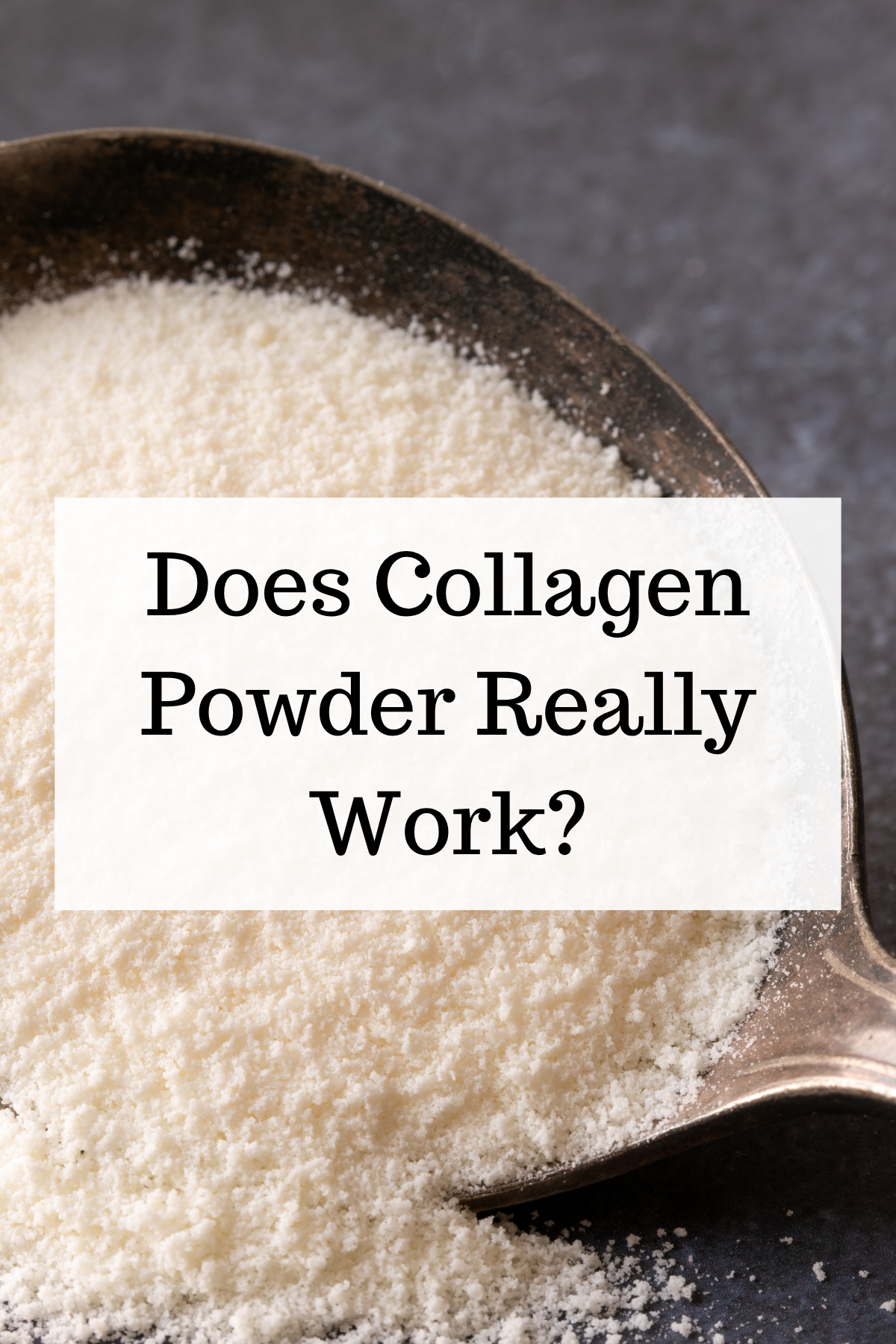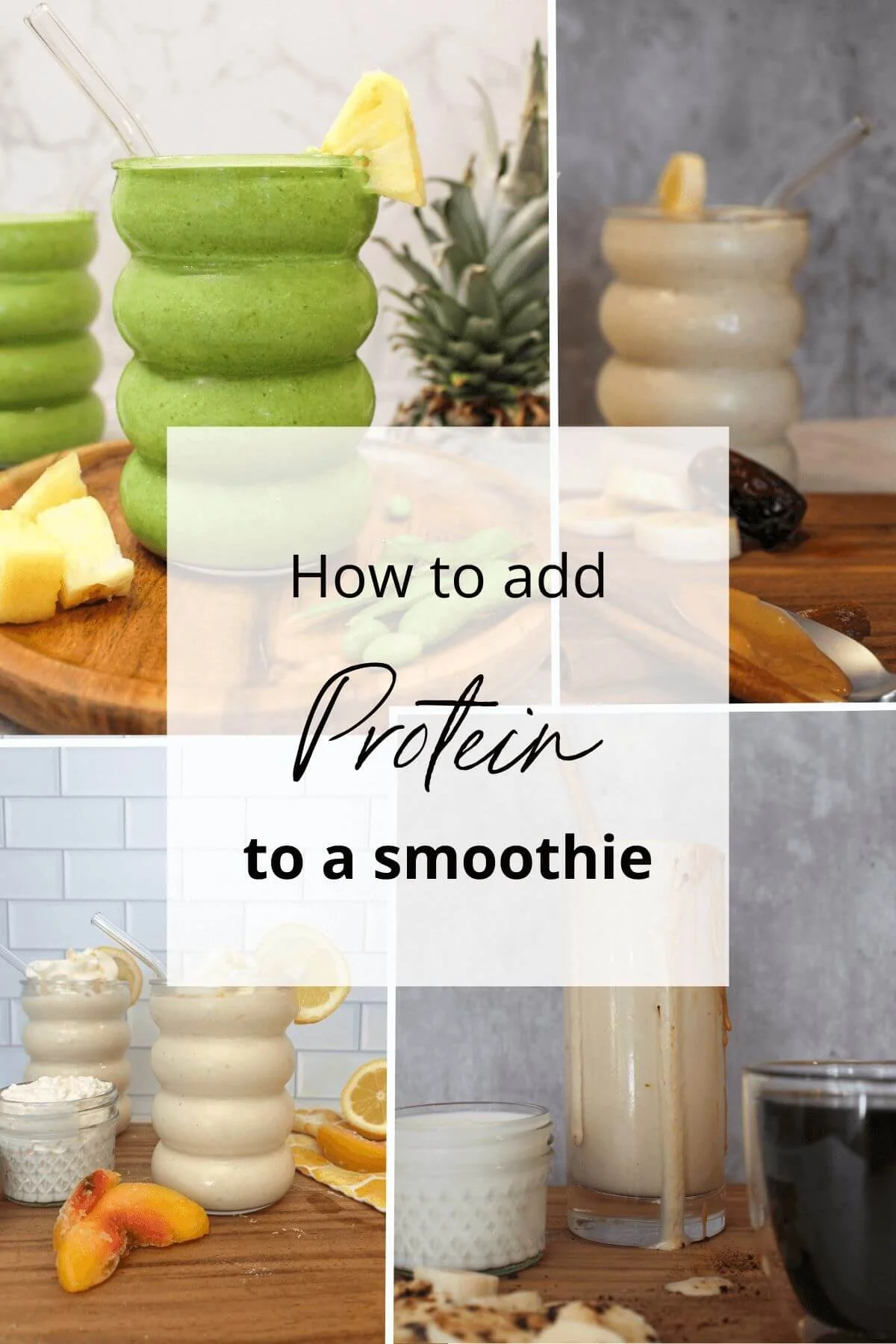Does Collagen Powder Really Work?
Whether its used as the solution for wrinkles or a remedy for achy joints, collagen supplements have gained interest from consumers for potential health benefits but does collagen powder really work? Let’s break down the research and find out if collagen powder is right for you!
One area of health that gets almost as much interest as high protein diets is the interest in anti-aging solutions. Whether it be to reduce achy joints, maintain skin elasticity, or erase fine lines and wrinkles, we are constantly searching for products or solutions to keep us feeling and looking young!
From bone broth to fish oil pills, many products are marketed for anti-aging benefits. One product that has gained popularity in this space are collagen supplements with potential benefits to improve skin, reduce joint pain, and more!
But are collagen supplements really the fountain of youth that they are marketed as? Hey, I’m Lauren, I’m a registered dietitian and I’m here to help you pick through the seemingly endless options of supplements, powders, and health products to help you find the best option for you.
Today we will review collagen products, what they are, and evaluate the effectiveness of collagen supplements to find out if this is a supplement you should be adding to your daily routine!
Does Collagen Powder Really Work?
What is collagen & what is collagen good for?
Before you consider taking a collagen supplement we should start by discussing what collagen is and what collagen is good for. Bottom line is- collagen products simply add MORE of something to your body that your body is making on its own. This is true for almost all supplements on the market.
There are a lot of terms used in the collagen market with popular terms being collagen and collagen peptides (or hydrolyzed collagen). You’ll also see numbers associated with collagen including collagen 1, collagen 2, and collagen 3… we’ll get to that.
The broader term, collagen, refers to a type of structural protein found in the connective tissue of your body. Interestingly, collagen makes up about 30% of the protein in your body and there are roughly 28 different types of collagen protein in the body. This is where those numbers come in!
Like any protein, collagen can be broken down into smaller pieces or building blocks (cough- amino acids- cough) and this is where the term collagen peptides comes in. Collagen peptides are simply smaller, more broken down pieces of whole collagen and are easier for your body to use and absorb. Collagen peptides may also be referred to as hydrolyzed collagen.
So what does collagen do in the body? Among other roles, collagen acts as a building block within connective tissue… and connective tissue is what holds your body together and maintains its structure. So connective tissue holds your body together and collagen provides strength and support for the connective tissue. Seems very important!
From skin elasticity to joint stability, strong connective tissue is essential. Your body can create its own collagen but the internal production of collagen decreases as we get older which is where the interest in external collagen supplementation comes from.
What is collagen powder?
Now that we have discussed what collagen is, you can better understand what collagen powder is. Collagen powder is simply a supplemental form of the collagen found in your body and the goal is to replace, enhance, or offset the decrease in collagen production as you age.
Most collagen powders are derived from the connective tissue of different animals, primarily cows, pigs, and fish that are then processed into a supplemental powder. Beyond collagen powder, you can also take collagen supplements in pill or tablet form as well. You may apply collagen topically with some anti-aging creams… but honestly, that isn’t where the research is.
There are also plant based collagen powders… which aren’t really collagen because plants do not produce collagen. Instead, plant-based collagen powders are simply specific amino acids that you would find in a whole collagen protein including proline, hydroxyproline, and glycine.
As with all of the protein that we eat and the protein powders we mix in to our smoothies, collagen is not actually absorbed into the body as “collagen.” Instead, it is broken down into smaller more absorbable pieces like peptides or amino acids which are absorbed then used to rebuild protein structures that your body needs.
This is important to consider when taking a collagen supplement… just because you are consuming collagen doesn’t mean that your body is going to use it to build collagen in the body. Instead, your body will absorb it as individual amino acids which are the building blocks for every type of protein.
This digestibility aspect of whole collagen powder is why most health professionals, myself included, recommend taking a hydrolyzed collagen powder or collagen peptides. These supplements use enzymes to begin breaking down the whole collagen protein and can be more digestible, making them more effective for their intended use.
Looking to eat more protein? Check out this blog with tips to add protein to a smoothie!
Is collagen powder good for you?
In a nutshell, collagen powder is simply a specialized type of protein powder and it can absolutely fit into a healthy diet. Using collagen supplements in your day may not only have unique health benefits but it can also increase your protein intake, balance blood sugar, and even muscle mass.
Always remember that supplements, including collagen, are not not necessary in a healthy diet. You DO consume collagen if you eat meat… so a powder will simply enhance that. To pick the best collagen powder, I recommend focusing on a high quality supplement that has been third party tested for safety. I also recommend choosing collagen peptides vs collagen powder for better absorption.
One thing to note about collagen powders is that they are not considered a “complete protein” which means that they do not have all of the essential amino acid building blocks that your body needs. Not a problem if you eat plenty of complete proteins, but something to consider if you have limited protein intake!
What does collagen powder do?
There are many health claims circulating about collagen products and their impact on your body, your joints, and your appearance. However, the effectiveness of collagen supplements depends on what you are using them for, the type of collagen supplement, and the amount of collagen in the supplement itself.
Here are a few of the more popular potential benefits for collagen powder and what the research says about them:
Collagen may help maintain skin elasticity and improve skin appearance:
Collagen plays a key role in the skins connective tissue but collagen production in the skin decreases as we age and are exposed to external factors like sun, pollution, and more.
Some research suggests that collagen supplement, specifically with hydrolyzed collagen like collagen peptides, may improve skin elasticity, hydration, and overall collagen density in the skin. By enhancing your skins hydration, this could benefit your skins overall appearance!
There are, however, other studies that show no improvement in skin elasticity when funding from pharmaceutical companies was removed. Clearly this is an area that needs more research but I am encouraged by some of the findings.
Taking collagen reduces the appearance of aging:
With its potential benefit to maintain skin elasticity and hydration, collagen may help reduce the appearance of aging to a certain degree. Beyond the potential cosmetic benefits, collagen supplementation may also reduce pain and function loss related to
When I read the results of studies, I think the takeaway is that, while it has potential, collagen may not be the fountain of youth that it’s marketed as. Instead, consider using collagen supplemented within a wellness oriented lifestyle that focuses on proven anti-aging efforts such as minimizing sun exposure and eating plenty if antioxidants in your diet.
Collagen supplements reduce joint pain and inflammation:
A recent study from 2025 gathered the results of other studies performed on collagen and showed that supplementing collagen peptides OR whole collagen powder can reduce the symptoms of osteoarthritis as well as increase function and mobility. These are exciting results as osteoarthritis is becoming increasingly common as people live longer.
While there were benefits seen in those with osteoarthritis, there was no change observed in those experiencing issues with rheumatoid arthritis.
Hydrolyzed collagen may promote wound healing
One interesting finding coming out of collagen supplement research is that hydrolyzed collagen supplements may play a role in wound healing! Among other nutrients like zinc, protein has always been a recommendation to promote wound healing but we may be able to take it a step further by being more specific with a collagen recommendation.
Other claims related to collagen supplements such as reducing joint pain from exercise or reducing inflammation have very mixed results in research.
So does collagen powder really work? Here’s the takeaway:
Simply put, collagen powders are a special form of protein powder featuring the protein collagen. Your body creates its own collagen but this production decreases as we age, which is where collagen supplements comes in.
Bottom line is the research gives very mixed results when it comes to collagen. Some research does suggest potential benefits from collagen peptides such as increased skin elasticity, decreased pain from osteoarthritis, better wound healing and more. For many, thats enough to start including collagen their daily routine!
Collagen peptides tend to have very few adverse effects so beyond their high price point, incorporating a third party tested collagen peptides is a low risk effort. If you are going to buy a collagen supplement then I recommend buying hydrolyzed collagen like collagen peptides and taking it EVERY DAY to get an effective dose.
With mixed results, my general takeaway is that collagen powder is not the secret anti-aging weapon that its generally marketed as but that it may be marginally helpful with other proven lifestyle changes like adequate sleep, a balanced diet, resistance training, stretching and minimal sun exposure.
Liked this review? Check out some of my other deep dives:
*These blogs may contain affiliate links. Any purchase made through my links gives me a small commission and supports Lauren Twigge Nutrition.Hey! I’m Lauren
I’m a Registered Dietitian and busy toddler mom committed to bringing you delicious, nutritious, and easy-to-make recipes!








